Are you curious about the ins and outs of reviewer identity disclosure? In our ever-evolving world of academic critique, understanding the importance of transparency in the peer review process has never been more vital. Whether you're an aspiring author or an experienced researcher, grasping how reviewer identities are handled can profoundly impact your work's reception. Join us as we delve deeper into this topic and explore how it shapes the future of scholarly communication!

Purpose of Disclosure
Reviewer identity disclosure clarifies the reasoning behind revealing the identity of peer reviewers in the academic publishing process. This practice aims to enhance transparency and accountability within the review process, encouraging more constructive feedback from reviewers. Increased openness may also help prevent potential biases, fostering a fairer evaluation of submitted research articles. Additionally, making reviewer identities known can promote professional recognition, as reviewers gain acknowledgment for their contributions to the scholarly community. In institutions such as academic journals or conferences, the purpose of disclosure aligns with ethical standards, reinforcing integrity within research dissemination.
Reviewer's Consent
In academic publishing, the concept of reviewer's consent ensures transparency and integrity throughout the peer review process. The reviewer's consent signifies their agreement to disclose their identity to the authors and the public, fostering accountability in feedback and critique. Important factors in this context include the ethical standards set forth by organizations such as the Committee on Publication Ethics (COPE) and the International Committee of Medical Journal Editors (ICMJE). The disclosure can positively impact trust in the peer review process, contributing to a more open scholarly dialog. However, considerations surrounding the potential for bias or conflicts of interest, especially in competitive fields, remain crucial to address.
Confidentiality Assurance
In academic publishing, reviewer identity disclosure plays a significant role in maintaining transparency and academic integrity. Many journals implement confidentiality assurance policies to protect reviewer identities. For instance, in the case of double-blind peer review, which is commonly enforced by reputable journals like Nature and the American Economic Association, both authors and reviewers remain anonymous during the review process. This anonymity encourages unbiased feedback while protecting the reviewers from potential repercussions. Additionally, institutions, such as the Committee on Publication Ethics (COPE), offer guidelines that emphasize confidentiality, encouraging reviewers to provide constructive critiques without fear of exposure. By adhering to these principles, the integrity of the review process is upheld, ensuring that the peer review system remains effective and credible.
Context of Disclosure
Reviewers play a crucial role in the academic publishing process, providing valuable insights and assessments of submitted manuscripts. In the context of disclosure, transparency regarding reviewer identity is essential for maintaining the integrity of peer review practices. Various institutions and journals encourage, or even mandate, the disclosure of reviewer names (or anonymized identities) to enhance accountability. For instance, leading journals in fields such as psychology and medicine have adopted open peer review methodologies, revealing reviewer identities to the authors post-publication. This shift aims to foster constructive feedback, improve scientific discourse, and elevate the overall quality of research output. Such transparency can also mitigate biases and conflicts of interest, while promoting a culture of trust among authors, reviewers, and editors.
Institutional Policy Compliance
Institutional policies mandate transparency in reviewer identity disclosure to foster trust and integrity within the review process. Compliance involves adhering to established guidelines set by academic institutions or journals, emphasizing the importance of ethical considerations in scholarly communications. Adherence to policies ensures that reviewers are accountable, minimizing biases and conflicts of interest. Institutions typically require thorough documentation regarding reviewer selection and identity verification to maintain high standards of academic rigor. Furthermore, detailed procedures are often outlined for handling potential violations, ensuring that any breaches of confidentiality are addressed promptly and effectively.
Letter Template For Reviewer Identity Disclosure Samples
Letter template of notification regarding reviewer identity transparency
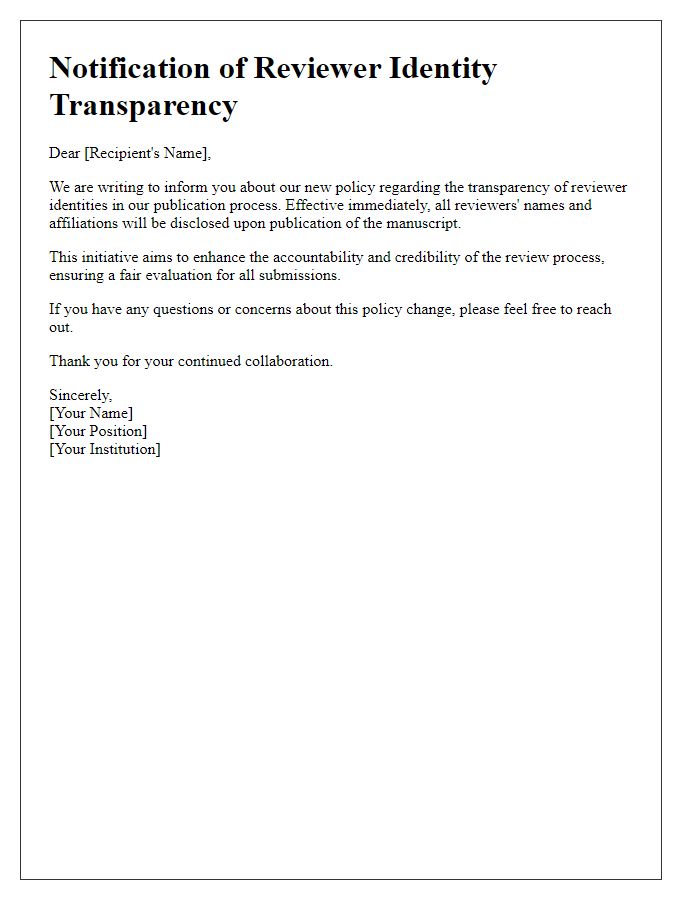

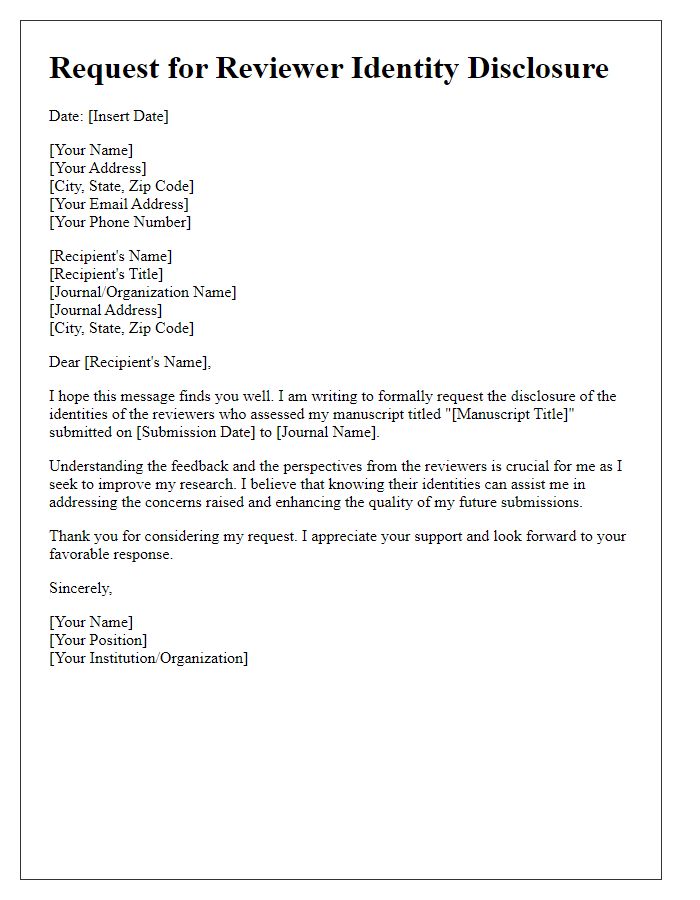
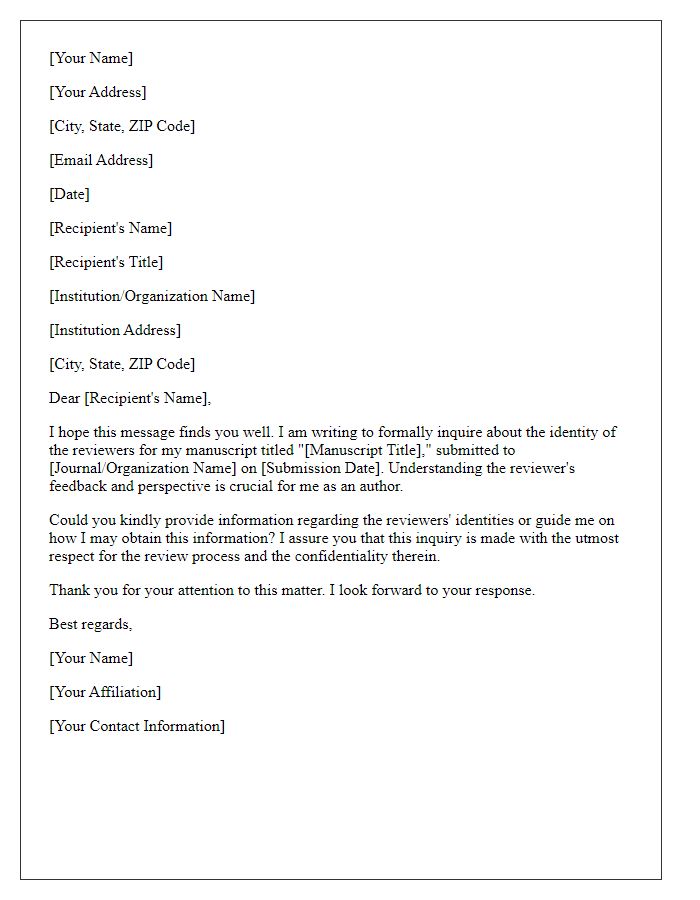
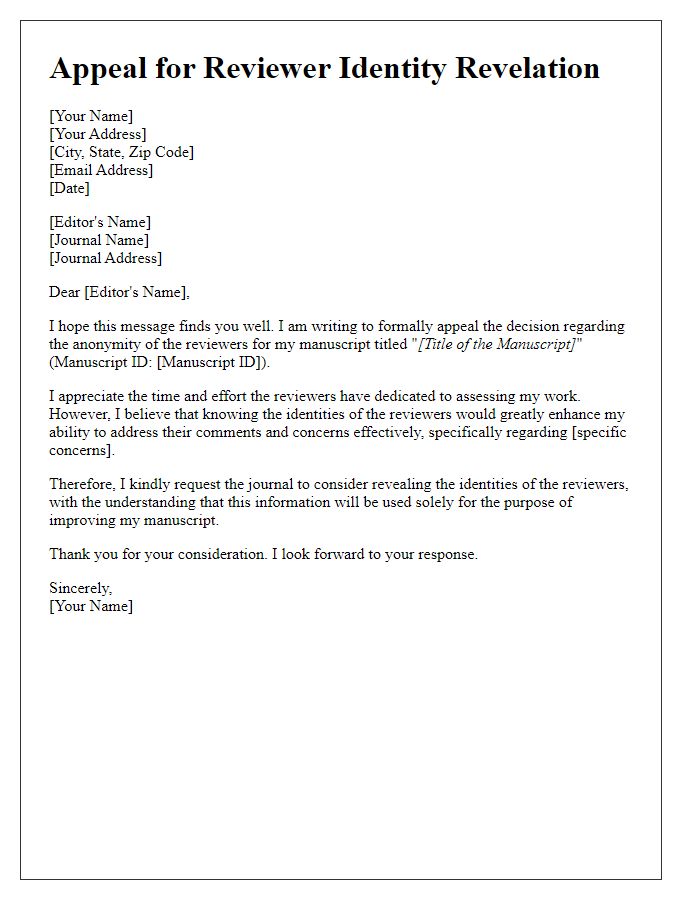
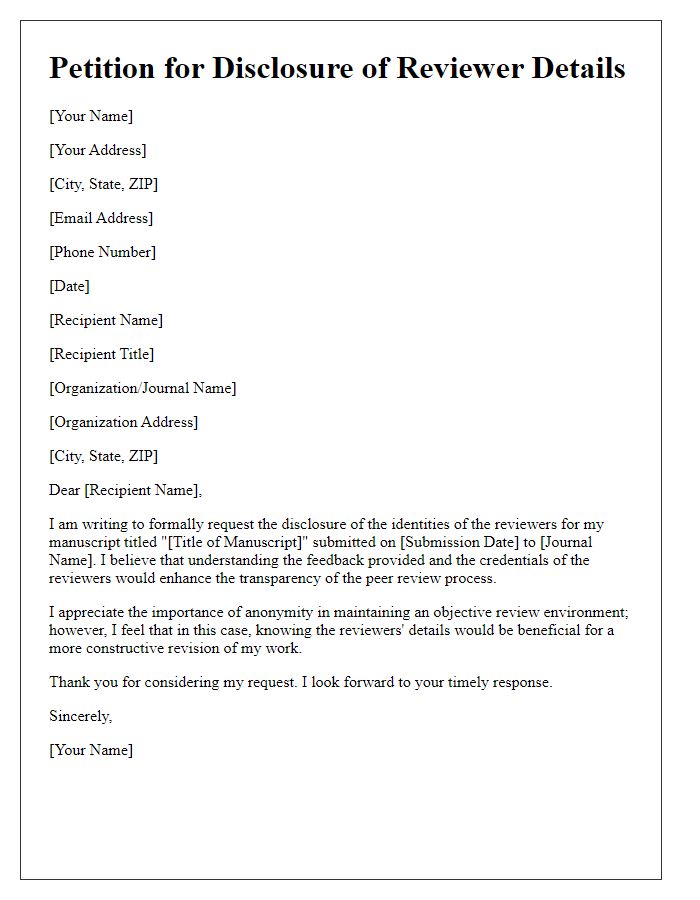
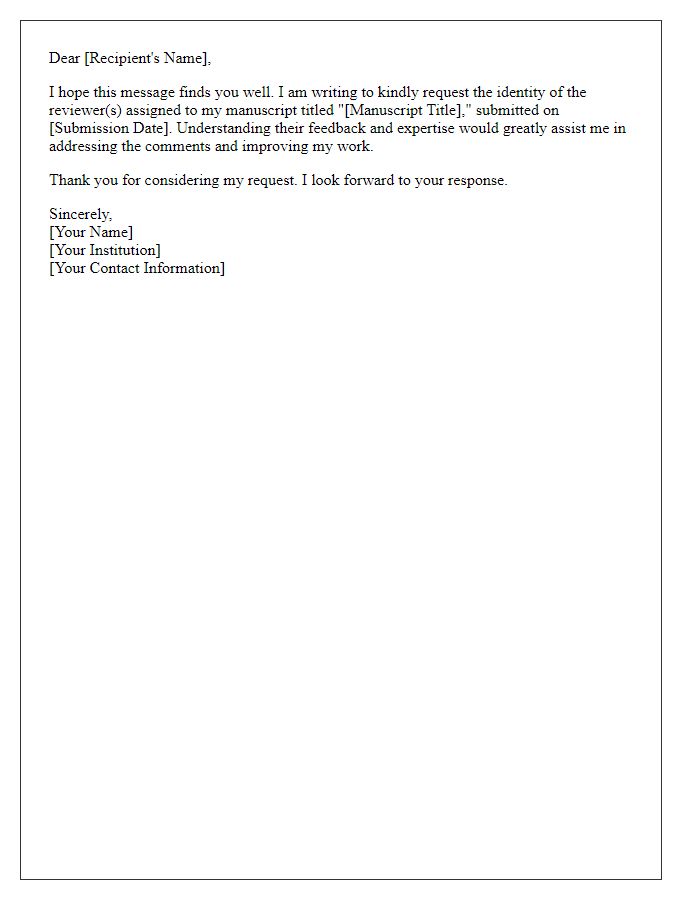
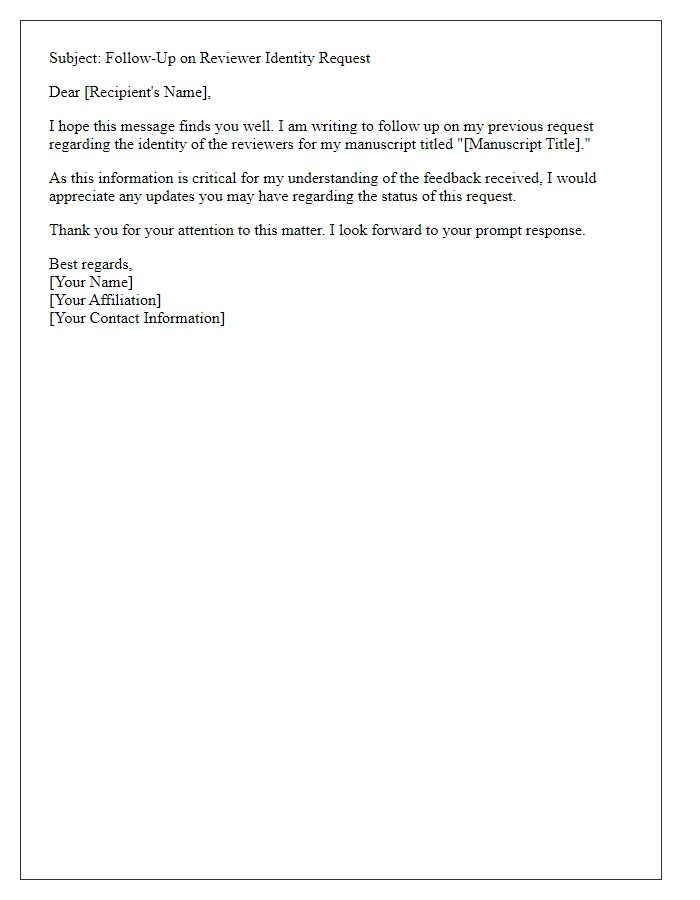
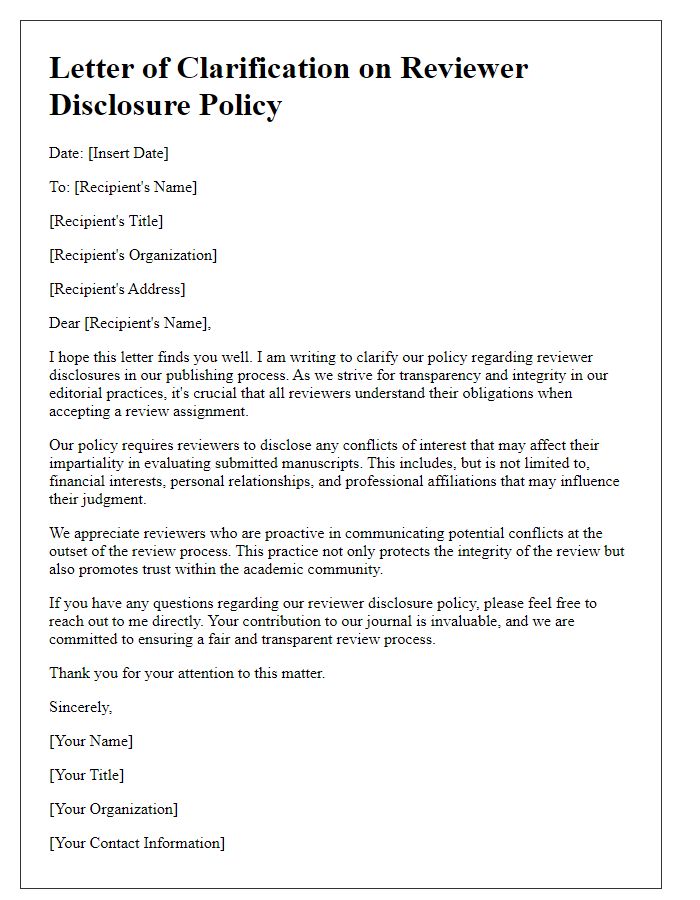
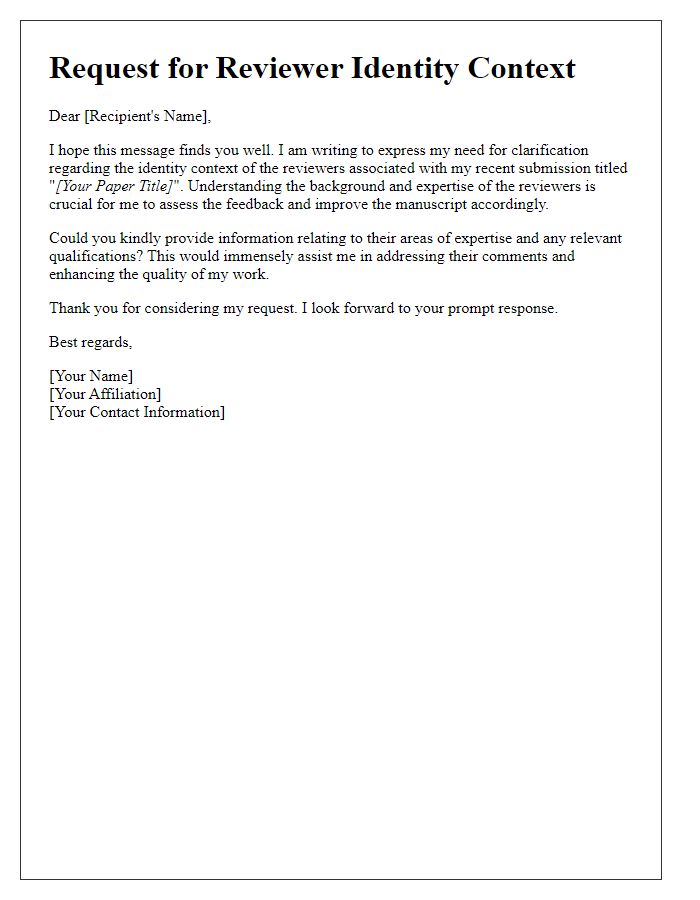
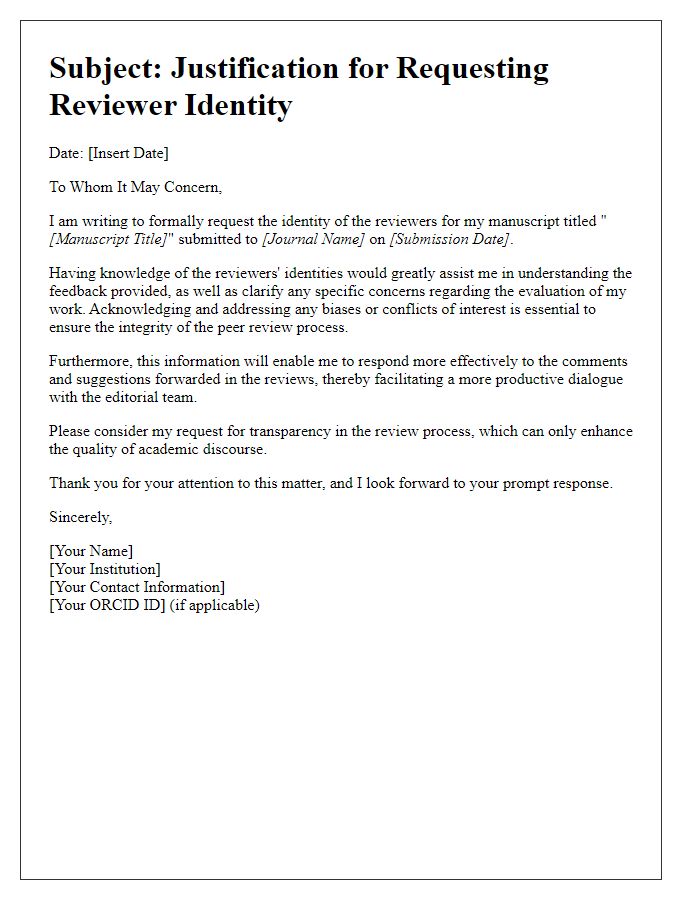

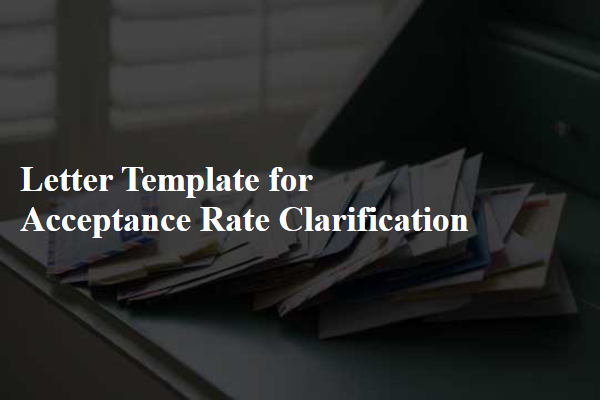
Comments